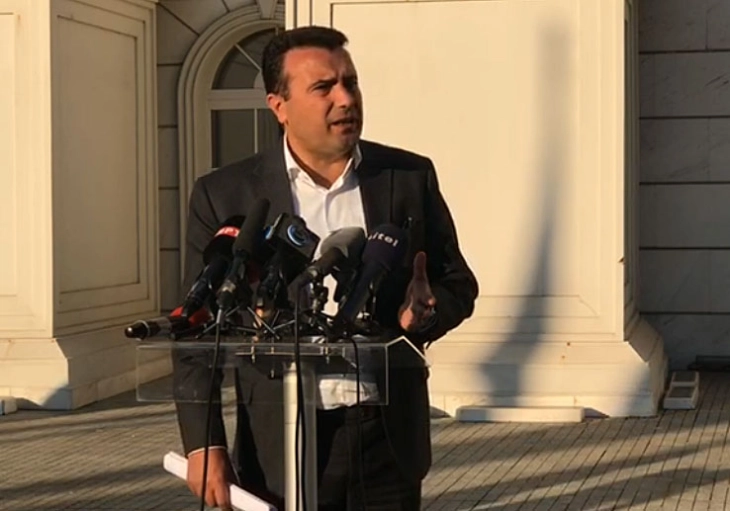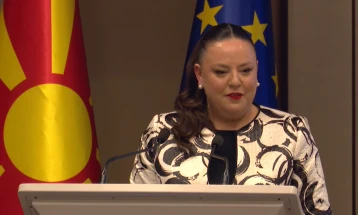Zaev rejects resignations of Health Minister Filipche, deputy Hasani
- Post By Magdalena Reed
- 16:30, 5 October, 2021

Skopje, 5 October 2021 (MIA) — Prime Minister Zoran Zaev has rejected the resignations submitted by Health Minister Venko Filipche and his deputy Ilir Hasani to take moral responsibility for the deadly Tetovo modular hospital fire that broke out on Sept. 8 and claimed 14 lives.
“There is no reason to locate political or managerial responsibility with Minister Venko Filipche and Deputy Minister Ilir Hasani, who resigned on moral grounds,” Zaev said on Tuesday, adding that he gave them his full confidence to continue running the health care system.
Zaev reiterated that he would not allow parties to politicize the Tetovo hospital tragedy.
“We, the politicians and the executive power, generally cannot and will not interpret the report of the experts who acted on the orders of the Public Prosecutor's Office,” he said.
“The cause of the fire has been revealed and it has been clearly and publicly announced,” he said. “I received this information and I immediately gave instructions to the Ministry of Health to carry out thorough field inspections in all modular hospitals as soon as possible.
“Now the most important thing is to intensify the controls and checks so we can reduce the risk of such accidents caused by foreign objects in the future, due to which, unfortunately, we lost 14 lives,” the prime minister said.
Earlier today, an expert report on the Tetovo modular hospital fire drafted by the Ministry of Interior’s Forensics Department was delivered to the Tetovo Public Prosecutor’s Office.
Experts found traces of an electrical short-circuit in the materials taken from the site of the fire, which helped them determine the cause for the fire, the PPO said.
According to the PPO’s release citing the report, the fire was caused by an electrical short-circuit in a cable of a defibrillator during its use on a patient in one of the hospital rooms.
The cable’s overheating caused an ignition in the socket box of an extension cord where the defibrillator was plugged in alongside a cell phone charger and another device.
When they noticed the flames, the medical workers tried to put it out but the fire quickly spread throughout the premises, engulfing the roof panels and then the lower levels of the panel walls and the hospital inventory, the report said.
“Considering that all patients were attached to the main oxygen supply, meaning that the oxygen levels in the premises were high, as well as the damage to the oxygen wiring during the fire, the flames spread across the facility in a very short time.
“The fact there were no compartments between the modules/rooms and the hallway, which would have slowed down the fire spread, additionally contributed to this,” according to the PPO.
More reports are expected by other institutions along with the report from the German team of experts. ik/mr/







